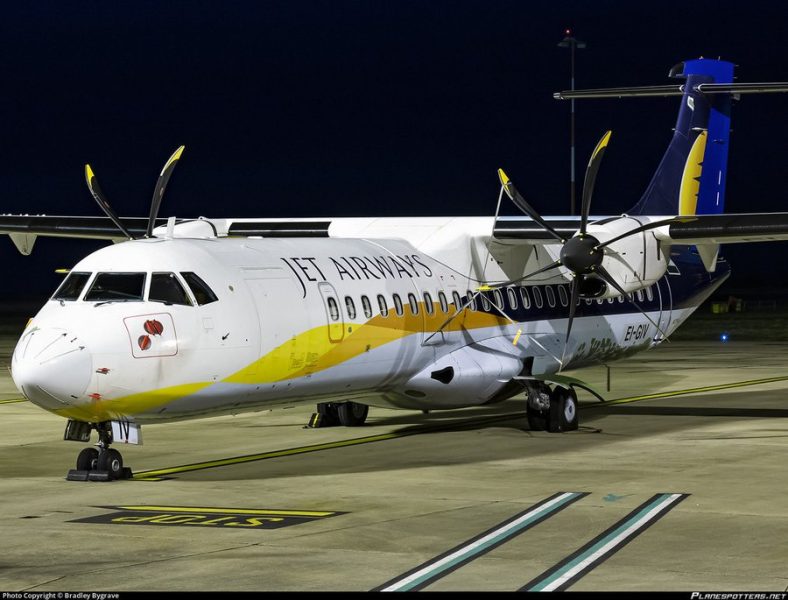
Jet Airways revival not happening in a hurry despite promising signs
The new owner consortium's capacity to negotiate lower prices with suppliers and aircraft makers may be hampered due to fraud charges against co-promoter Florian Fritsch; Jet's massive debt is not helping

The Jalan-Kalrock partnership, the new promoters of Jet Airways, is in a tangle, as the most recent developments suggest that the start of its operations may be further delayed.
The primary airline promoter Florian Fritsch was reportedly charged with fraud and money laundering last week after searches were conducted at several of his properties in Austria, Liechtenstein, and Switzerland. The raids were carried out as a part of a more extensive investigation into fraud and money laundering suspicions. A group chosen to rescue Jet Airways includes Fritsch and his financial firm.
Analysis | From the horse’s mouth: What caused the crash landing of Jet Airways?
In 2019, the airline declared bankruptcy. But in 2021, Fritsch and a businessman from Dubai named Murari Lal Jalan obtained approval for the consortium’s resolution plan from the National Company Law Tribunal (NCLT), which gave them the go-ahead to resurrect the airline. While Jalan’s stated net worth was $138 million, Fritsch had disclosed to the NCLT that his net worth was $250 million.
Negotiation powers down
The consortium’s capacity to negotiate lower prices with suppliers and aircraft makers may be hampered, despite strong claims made by insiders close to the airline that these searches won’t hinder Jet Airways’ strategy to revive. Following the demise of Kingfisher Airlines and a few other airlines, leasing companies have been wary of Indian airline carriers. Their attempt to reclaim aircraft that were leased to some operators has run into legal problems.
Jet Airways, a full-service carrier that began operations in 1993, went out of business in 2019 due to mounting debt, an inability to secure additional financing, and fierce competition from low-cost carriers like IndiGo and SpiceJet.
Five key obstacles
Despite the consortium partners’ best efforts to save the airline, there are significant obstacles to overcome. Let’s start with the most recent issue that has made the resuscitation of the airline project more difficult:
Massive dues: The NCLT requested the consortium to pay the employees’ outstanding gratuity and provident fund balances, totalling almost ₹200 crore, a fortnight ago. In addition, the consortium was expected to contribute funds for the airline’s capital expenditures and the clearance of outstanding debts.
Out of the ₹380 crore committed, the consortium was also scheduled to pay ₹185 crore to the lenders and ₹52 crore to the employees. While the deadline to pay the lenders is November 16, the time to pay the employees expired on November 11.
However, according to the consortium, these dates were predicated on the lenders transferring control of Jet Airways, which still needs to happen. However, the lenders want payment in full from the new promoters before transferring ownership. The new promoters have also claimed that they have adhered to all requirements established by the NCLT.
Deadlines missed: The resolution further states that the consortium led by SBI will hold close to 10% of the airline, with the public owning less than 2% and the remainder being held by the consortium. But so far, all of the deadlines are yet to be met.
Also read: Good news is Jet Airways will finally fly again. Now read the bad news
No sign of reactivation: The airline established a debut date of September after receiving its Air Operator Certificate (AOC) from the Director General of Civil Aviation (DGCA). There has been no indication of the airline’s reactivation over the past two months. The collaboration has not chosen a specific aircraft or powerplant. When it selects an aircraft, it will take a further four months to wheel it out to the runway. The airline disputed last week’s rumours that it had signed a contract with one of the leasing companies to introduce an A320.
Top-level exodus: Top officials have already left the organisation before operations, including the vice president and three directors.
Bad choices: The government’s efforts to save the airline rather than allow it to close down ultimately proved unsuccessful. When the Naresh Goyal airline paid $500 million for Air Sahara in 2006, issues arose. This was possibly its worst error. As a low-cost carrier, the airline renamed Air Sahara as JetLite. Since then, it has been losing money as customers switch to JetLite, which has lower prices and equal quality of service to Jet Airways.
It currently owes the SBI-led consortium over ₹7,800 crore, a debt that the lenders will never be able to recover and that would have a significant negative impact on their balance sheet. According to the new promoters, only about 5 per cent of the debt owed to the lenders will be paid.
The Fritsch effect
If Fritsch’s accusations are found to be true, there will be far-reaching effects at home. While the leasing businesses look for higher leasing rates to safeguard themselves from any default from the new promoters, the SBI-led lenders will be forced to ask NCLT’s intervention to enforce stiffer deadlines for the new investors.

